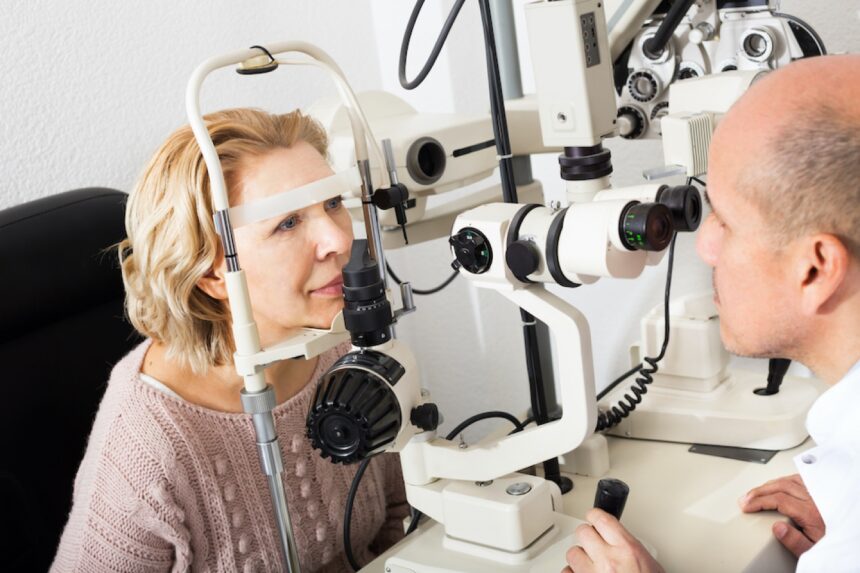Glaucoma is a group of eye conditions that damage the optic nerve, which is responsible for sending visual information from the eye to the brain. This damage may be caused by abnormally high pressure inside your eye. Over time, glaucoma can lead to vision loss, often starting with peripheral vision. Here are some coping strategies for patients with glaucoma:
Use Vision Aids
Vision aids offer support for individuals diagnosed with glaucoma. A range of options is available, including:
- Magnifying glasses: Available as handheld models or as stand-up types, these enlarge both print and objects, allowing you to read instructions on medication bottles, food packages, or newspapers more easily.
- Large-print books and magazines: These help reduce eye strain and make reading more comfortable. Some digital devices, such as tablets and e-book readers, come with built-in text enlargement features, offering flexibility and convenience.
- Voice-activated devices: These enable access to books, news, and daily information without relying solely on vision.
- Specialized eyewear: Lenses that reduce glare or enhance contrast may support you in bright or low-light settings. Telescopic lenses, which attach to glasses, are helpful for seeing objects at a distance, such as street signs, bus numbers, or presentations at meetings.
Adjust Your Environment
Making your home and work environments more accessible supports your safety and comfort. Add brighter lighting in hallways, bathrooms, and entrances to make it easier to see obstacles. Lamps with adjustable arms give control over the direction and strength of light in reading or work areas.
Applying high-contrast tape to the edges of stairs, countertops, or glass doors helps highlight edges and reduces the risk of tripping or bumping into things. Brightly colored or tactile labels on everyday items, such as kitchen utensils, cleaning supplies, or remote controls, can help you quickly locate what you need. Arranging furniture so that pathways are wide and unobstructed helps lessen the likelihood of falls.
Many people find it helpful to keep items like keys, phones, wallets, and medications in the same spot. This creates predictable systems that reduce challenges and wasted time. If you feel comfortable, speak with friends or coworkers about your adaptations, as their awareness can support you during gatherings or meetings by helping keep walkways clear.
Communicate With Your Care Team
Your healthcare providers can help you manage both the physical and emotional aspects of glaucoma. Keeping a journal or list of questions, symptoms, or challenges that occur helps eye doctors better understand your condition. Note if you’ve had trouble with glare or changes in your vision. Sharing this information helps your doctors tailor guidance to meet your needs.
Your care team might include your ophthalmologist, optometrist, primary care doctor, and sometimes occupational therapists or low-vision specialists. They may recommend community resources, such as support groups, counseling, or technology training, that promote independence. Effective communication and asking for clarification or written instructions enable you to stay involved in your care plan.
Explore Glaucoma Treatments
Several approaches are available for managing glaucoma and protecting your vision. Eye drops prescribed to lower pressure are often used daily, and following your schedule as directed helps establish positive routines. Oral medications may be recommended when additional pressure control is needed. In some cases, procedures such as laser therapy or surgery are discussed. These interventions target various parts of the eye’s drainage system to reduce pressure and limit optic nerve damage.
Each person’s treatment plan may look different based on their type of glaucoma, stage of progression, overall health, and lifestyle factors. Your ophthalmologist can explain each option, including what you might experience before, during, and after a treatment. Adhering to your treatment plan, attending all follow-up appointments, and asking about side effects or alternatives are practical steps to managing this condition.
Visit a Vision Specialist Today
Adapting to life with glaucoma involves using vision aids, creating supportive environments, and working closely with your care team. These help maintain your independence and well-being. With various treatment options available, you can tailor your approach to suit your unique needs. Consult a vision specialist today for guidance and solutions to help you manage glaucoma effectively.









